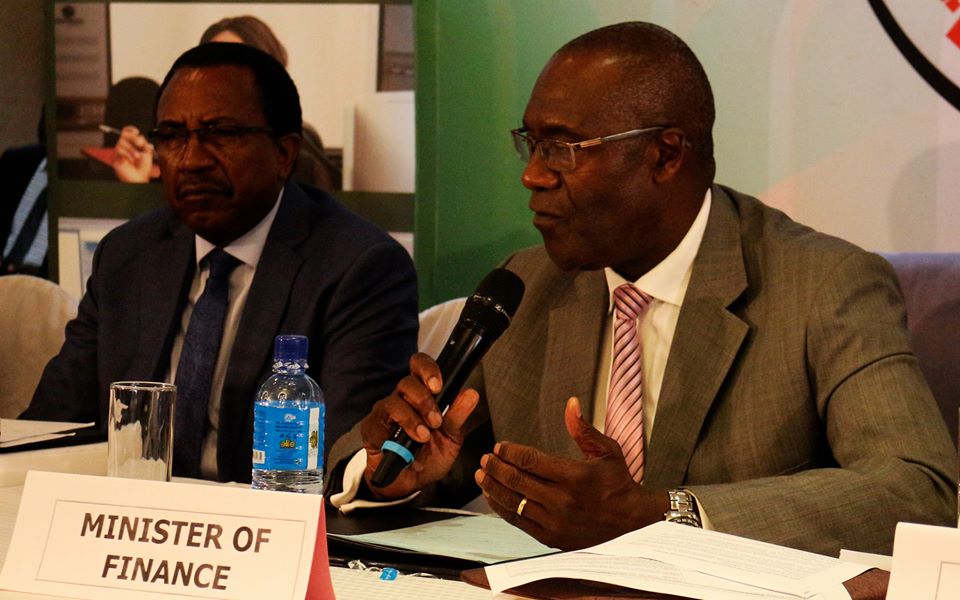CTPD Senior Researcher-Legal Chileshe Mange explains ‘Legal implications’ on Zambia of the Eurobond default
Notice: Undefined index: catFilterList in /home/zambi/public_html/wp-content/plugins/wp-likes/api.php on line 243

CTPD Executive Director Isaac Mwaipopo
CTPD Senior Researcher-Legal Chileshe Mange explains ‘Legal implications’ on Zambia of the Eurobond default
By Derrick Sinjela
CENTRE for Trade Policy and Development CTPD Senior Researcher-Legal Chileshe Mange is worried following Government failure to honour another coupon payment due under one of the Eurobonds.
In a Sunday 7th February 2021 Press Statement circulated by CTPD Information and Communications Specialist Ms. Mwaka Nyimbili, Ms. Mange’s worry arose a week or seven days Ministry of Finance confirmed on Sunday 31st January 2021 that Zambia had actually failed to honour a US$56.1m coupon payment that was due on Saturday 30th January 2021 on one of Eurobonds which matures in 2027 which raised concerns as to the potential legal and economic consequences of the breach at hand.

Mwaka Nyimbili
In 2011, Zambia acquired low middle-income status which enabled it to access financing on the international bond markets.
Thus between 2012 and 2015, the Zambian Government through then Finance Minister Alexander Bwalya Chikwanda issued three Eurobonds to the value of US$ 3 billion.

Former Bank of Zambia Governor Dr. Michael Gondwe (far right), and Secretary to the Treasury Fredson Yamba (left) sandwich former Finance Minister Alexander Bwalya Chikwanda (centre)
“Bonds in this context are fixed income debt instruments that represent a loan advanced by an investor to a borrower such as a government or corporation which issues the bonds. Eurobonds are simply instruments issued in a currency other than the local currency of the issuing country.
The loans are supposed to be repaid through a series of scheduled coupon payments. A coupon payment of US$42.5 million coupon payment which was due on the Monday 14 September, 2020, was not made in anticipation of a favorable outcome to a request by the Zambian government to the bondholders for a standstill,” narrated Ms. Mange.
In his ministerial statement to the National Assembly of Zambia on Tuesday 17th November, 2020, the Finance Minister Dr. Bwalya Emmanuel Kanyanta Ng’andu warned the August House (Zambian Parliament) that one of the implications of Zambia not meeting its obligations is that creditors can enforce their legal rights under the financing arrangements.

Secretary to the Treasury Fredson Yamba listens to Finance Minister Bwalya Ng’andu address Zambian on the Sate of the Economy on Wednesday 12th February 2020
“In simplest terms, failure of the Government to meet its obligations is a breach of the contract which allows the aggrieved party to enforce its legal rights under the contract. It should be stated that CTPD is not privy to the actual financing agreements governing the Eurobond issuances. We can only deduce the consequences based on international commercial practices,” observed Ms. Mange pointing out that sovereign defaults are no longer considered above the law or unenforceable.
The CTPD Senior Researcher-Legal implored the Zambian leadership and citizenry to draw lessons from Argentina, were once it defaulted on more than $80 billion of debt in 2001, the lapse in honouring an internstional pact led to years of litigation and legal cases taken by several disgruntled bondholders until a USD 10 billion settlement was reached.

CTPD Senior Researcher-Legal Ms. Chileshe Mange
Another example cited my Ms. Mange is the Republic of Congo which was required by a New York court to pay on a 20-year-default in August 2017.
Creditors had tied the country in litigation in various jurisdictions including France and the United Kingdom, likewise, a United States (US) court authorised a Canadian money company to seize Venezuelan state assets in the United States pursuant to debt owed by Venezuela.
“A second possible trigger of the default is a call on the entire amount due. In other words, instead of the bullet coupon payments which allow a gradual repayment until the date of maturity, the entire amount under a bond issue could become due. Another implication of the sovereign bond defaults is a financial market embargo, caused in part by a drop in credit ratings, resulting in Zambia being precluded from accessing the capital markets and other potential financiers. Essentially private lenders will not be willing to lend Zambia money thereby limiting Zambia’s options for a debt restructuring,” observed Ms. Mange.
The CTPD Senior Researcher-Legal urged the Zambian Government to continue negotiations with creditors in the hope of securing a debt service standstill, whilst putting in place the necessary fundamentals for the economy to rebound or achieve some semblance of recovery.
As news has context, Ms. Mange conceded that the prevailing economic condition is exacerbated, worsened by COVID-19 pandemic, and thus, costly commercial disputes should not be seen last the last point of resort.
The Centre for Trade Policy and Development (CTPD) is a not- for –profit, membership based trade policy and development think tank established in 1999 and previously
existed as the Civil Society Trade Net work (CSTNZ), until 2009, when it was rebranded as the Centre for Trade Policy and Development (CTPD).
The mandate of CTPD is to influence pro-poor trade and investment reforms at national, regional and multilateral levels as well as facilitate the participation of various stakeholders including member organizations in ensuring that trade is used as a tool for poverty eradication.
For more information you can Email:info@ctpd.org.zm. or Visit our web site [www.ctpd.org.zm] You can also follow our TWITTER Account -@CTPDZambia Address: office Plot 123, Kudu Road Kabulonga
FOR IMMEDIATE RELEASE
Date: 7/02/21
LEGAL IMPLICATIONS OF THE EUROBOND DEFAULT
The Centre for Trade Policy and Development has observed that the Government has failed to honour another coupon payment due under one of the Eurobonds. The Ministry of Finance confirmed on 31 January 2021 that Zambia had failed to honour a US$56.1m coupon payment due on January 30 on one of Eurobonds which matures in 2027 which raises concerns as to the potential legal and economic consequences of this breach.
In 2011 Zambia acquired low middle-income status which enabled it to access financing on the international bond markets. Between 2012 and 2015 the Zambian government issued three Eurobonds to the value of US$ 3 billion. Bonds in this context are fixed income debt instruments that represent a loan advanced by an investor to a borrower such a government or corporation which issues the bonds. Eurobonds are simply instruments that are issued in a currency other than the local currency of the issuing country.
The loans are supposed to be repaid through a series of scheduled coupon payments. A coupon payment of US$42.5 million coupon payment which was due on the 14 September, 2020, was not made in anticipation of a favorable outcome to a request by the Zambian government to the bondholders for a standstill.
In his ministerial statement to the National Assembly of Zambia on November 17, 2020, the Minister of Finance warned the house that one of the implications of Zambia not meeting its obligations was that the creditors could enforce their legal rights under the financing arrangements. In simplest terms failure of the Government to meet its obligations is a breach of the contract which allows the aggrieved party to enforce its legal rights under the contract. It should be stated that CTPD is not privy to the actual financing agreements governing the Eurobond issuances. We can only deduce the consequences based on international commercial practices.
Sovereign defaults are no longer considered above the law or unenforceable. Lessons are drawn from Argentina. When Argentina defaulted on more than $80 billion of debt in 2001, it led to years of litigation and legal cases taken by several disgruntled bondholders until a USD 10 billion settlement was reached. Another example is the Republic of Congo which was required by a New York court to pay on a 20year default in August 2017. Creditors had tied the country in litigation in various jurisdictions including France and the United Kingdom. Likewise, a US court authorised a Canadian money company to seize Venezuelan state assets in the United States pursuant to debt owed by Venezuela.
A second possible trigger of the default is a call on the entire amount due. In other words, instead of the bullet coupon payments which allow a gradual repayment until the date of maturity, the entire amount under a bond issue could become due.
Another implication of the sovereign bond defaults is a financial market embargo, caused in part by a drop in credit ratings, resulting in Zambia being precluded from accessing the capital markets and other potential financiers. Essentially private lenders will not be willing to lend Zambia money thereby limiting Zambia’s options for a debt restructuring.
CTPD urges the Government to continue negotiations with creditors in the hope of securing a debt service standstill whilst putting in place the necessary fundamentals for the economy to rebound or achieve some semblance of recovery. Given the prevailing economic conditions exacerbated by COVID-19 pandemic, costly commercial disputes should be a last resort.
Issued By: Chileshe Mange (Ms)
CTPD Senior Researcher-Legal
Editor’s Note
The Centre for Trade Policy and Development (CTPD) is a not- for –profit, membership based trade policy and development think tank. The organization was established in 1999 and existed as the civil society trade network (CSTNZ), until 2009 when it was rebranded as the Centre for Trade Policy and Development (CTPD).
The mandate of CTPD is to influence pro-poor trade and investment reforms at national, regional and multilateral levels as well as facilitate the participation of various stakeholders including member organizations in ensuring that trade is used as a tool for poverty eradication.
For more information you can Email:info@ctpd.org.zm. or Visit our web site [www.ctpd.org.zm] You can also follow our TWITTER Account -@CTPDZambia Address: office Plot 123, Kudu Road Kabulonga





















